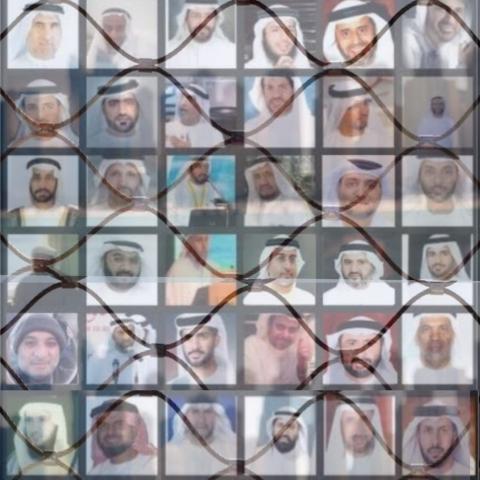
The authorities in the United Arab Emirates (UAE) are still holding more than 60 prisoners of conscience who have completed their sentences, some of whom completed their sentences in July 2022, but remain, after a series of violations, torture and ill-treatment, behind bars under the pretext of "counseling".
Among the victims who have completed their sentences is prominent lawyer and human rights activist Mohamed al-Roken, who has spent ten years in prison following an unfair trial.
For years, in the context of these concerns, Alkarama has worked on the case of lawyer Mohammed Al-Roken, and other prisoners of conscience, activists and political opponents victims of repression in the UAE, including dozens of peaceful dissidents known as the "UAE 94".
Alkarama submitted individual complaints on behalf of the victims to the United Nations special procedures including the Working Group on Arbitrary Detention which concluded more than once that their detention is arbitrary in nature and demanded their release.
Alkarama also recalled their case before the Human Rights Council in the context of the Universal Periodic Review regarding the human rights situation in the UAE, and published many press releases about them in the context of its media activity.
Reprisals against the families of detainees
Among the victims of repression in the UAE is the detainee of conscience Abdulsalam Darwish, who is an example of the extent of the brutality of the UAE authorities in repressing political opponents and their families.
While he remains detained despite the end of his sentence, his family is still stateless after their nationality being withdrawn from them by the authorities.
In addition, the authorities in the UAE continue to detain since six years human rights defender, Ahmed Mansoor, on charges of signing a petition demanding greater powers for the Federal National Council.
The authorities arrested him after spying on him, violating his right to privacy. He was sentenced to ten years in prison, in a trial that lacks minimum fair trial standards.
Emirati human rights activist, Ahmed Mansoor, has always been subject to reprisals as a result of his human rights activism and cooperation with international human rights organizations and UN mechanisms.
Despite UN criticism against the UAE authorities regarding the repression of activists and human rights defenders, as well as the condemnations issued by UN human rights experts that confirm the arbitrary nature of the victims of detention, the authorities are still ignoring these decisions.
At the same time, they are still trying to polish UAE's image as a state concerned with modernization and luxury hiding in fact a repressive approach against peaceful dissidents and freedom of expression.
In this context, Emirati activist Hamad al-Shamsi, director of the Emirates Detainees Advocacy Center, said that "torture is part of the system in the UAE, it has become systematic, as all prisoners of conscience go through the same stages, and this is supervised by state security. This is unfortunately covered by law, as the State Security Law of 2003 allows the agency to detain whomever it wants for 90 days without informing the public prosecutor."
In addition to solitary confinement, human rights organizations have documented cases of beatings and the use of light throughout the day to prevent detainees from sleeping, cold temperatures, etc. during interrogations of detainees, which are not isolated but systematic practice.
UN Resolutions
In light of the complaints submitted by Alkarama and other organizations, the UN Working Group on Arbitrary Detention, in its resolution No. 60/2013, dated 9 September 2013, regarding a number of political detainees in the UAE, concluded that the charges against them fall within the framework of the rights to freedom of expression, stressing that the restrictions imposed on those rights in this case cannot be considered proportionate and justified.
It also noted that the persons mentioned were held in solitary confinement following their arrest without any legal justification, and the charges against them later were vague and imprecise. The UN Group highlighted the serious violations of the right to freedom of opinion and expression and the right to a fair trial in this case.
Earlier, the Working Group issued both Opinion No. 64/2011 and Opinion 8/2009, in which it concluded that there were violations of the freedoms of opinion and expression, peaceful assembly and association, guaranteed under articles 7 and 10 of the Universal Declaration of Human Rights, and violations of freedom from arbitrary detention prohibited under article 9 of the Declaration.
The Group expressed concern about this typical practice of the UAE as reflected in these two Opinions, and stressed that the Government must comply with international law.
